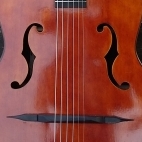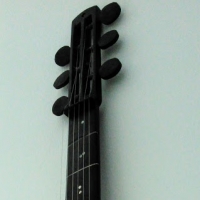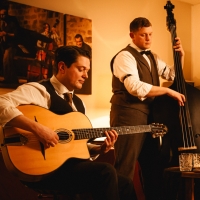DjangoBooks.com
Welcome to our Community!
Categories
- 18.1K All Categories
- 431 General
- 277 Welcome
- 11 Archtop Eddy's Corner
- 79 CD, DVD, and Concert Reviews
- 37 FAQ
- 9 Gypsy Jazz Italia
- 18 Photos
- 25 Gypsy Picking
- 4 Unaccompanied Django
- 4 Pearl Django Play-Along Vol.1
- 1 Gypsy Fire
- 25 Gypsy Rhythm
- 600 Gypsy Jazz University - Get Educated
- 117 Gypsy Jazz 101
- 187 Repertoire
- 143 History
- 96 Technique
- 40 Licks and Patterns
- Daniel Givone Manouche Guitare Method Users Group
- 17 Eddie Lang Club
- 1.1K Gypsy Jazz Gear
- 684 Guitars, Strings, Picks, Amps, Pickups and Other Accessories
- 343 Classifieds
- 39 Recording
- 39 Other Instruments
- 17 Violin
- 3 Mandolin
- 6 Accordion
- 3 Bass
- 10 Woodwinds
- 220 Gypsy Jazz Events
- 87 North America
- 86 Europe
- 47 International














Comments
Behind a firewall for me. Can you possibly pdf it and upload?
Thanks for posting the pdf.
Some obvious factual errors, like Maccaferri inventing the small hole, model jazz. And it has the resonator inside.
Also, I'm surprised Gopnik is throwing shade on Trad Jazz and big band players.
Way too many stereotypes being brought up and pointed out, it's totally unnecessary. I suppose in all fairness, if I read this 20 years ago I might've been nodding my head.
Also it's odd that Florine was not mentioned by her name, instead "a brief teen-age marriage to another Gypsy girl", given that Django was injured while saving her.
Thanks for the pdf, Bill!
I read a book by Adam Gopnik called "Paris to the Moon", and all I can say is I was glad I'd already been to Paris a couple of times, because if I'd read that book before I went, I never would have gone at all. How he became such a well-known writer is a mystery to me.
Good point about stereotypes.
I got the impression this is Gopnik summarizing Dregni's book. It doesn't seem like he knows much about the topic.
The part that triggered me was when he credited octaves to Wes Montgomery.
I had the same thought. Fake News!
I think he credited Wes' octaves to Charlie Christian.
I mean I guess Charlie used them. Like at the end of Stardust. But, octaves seems like more of a django thing.
That being said, we don't get to decide who Wes first heard octaves from.